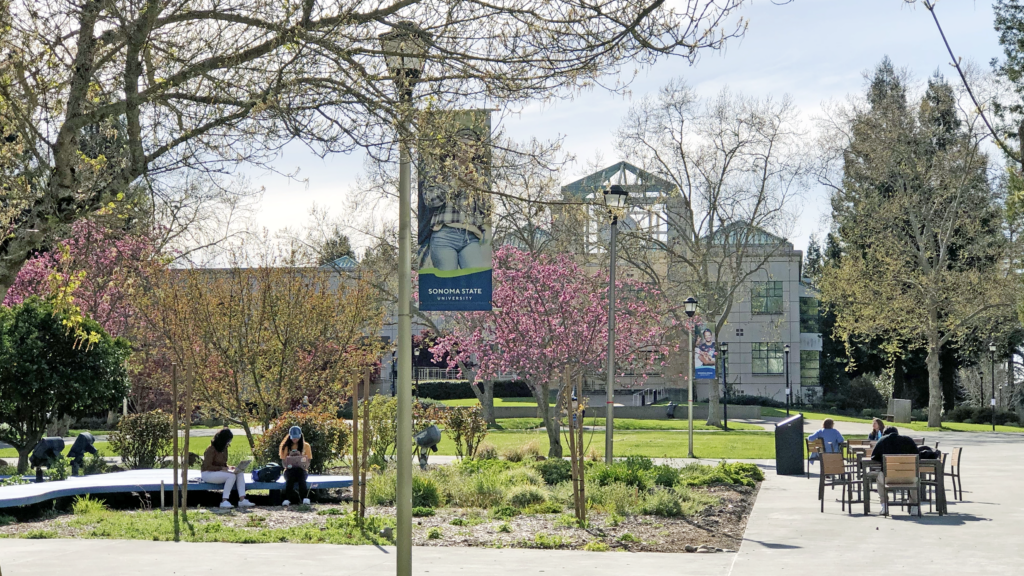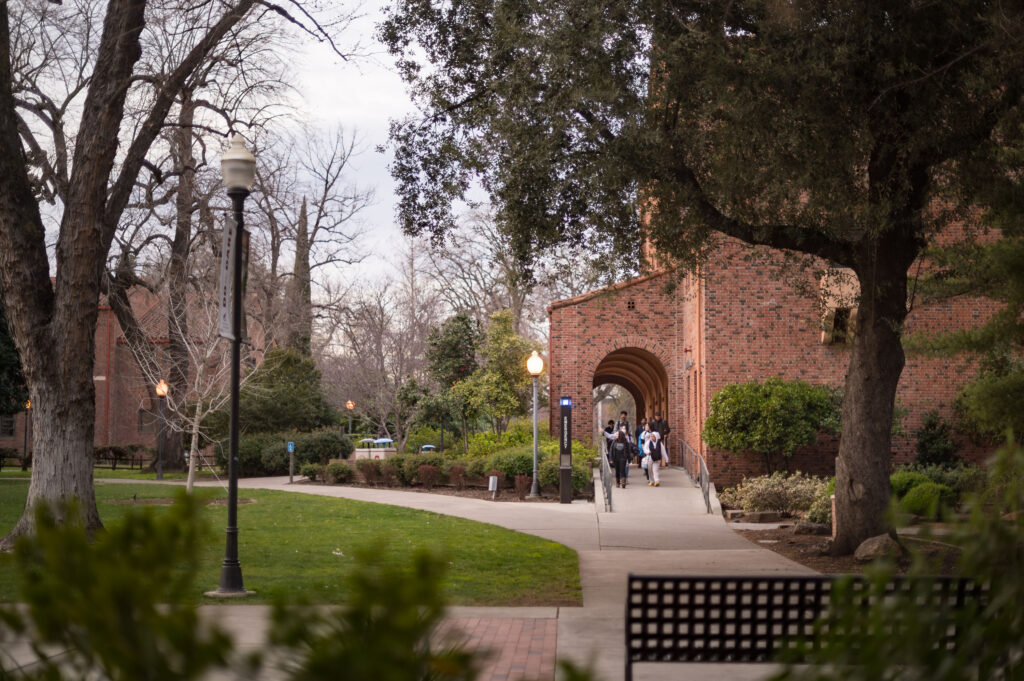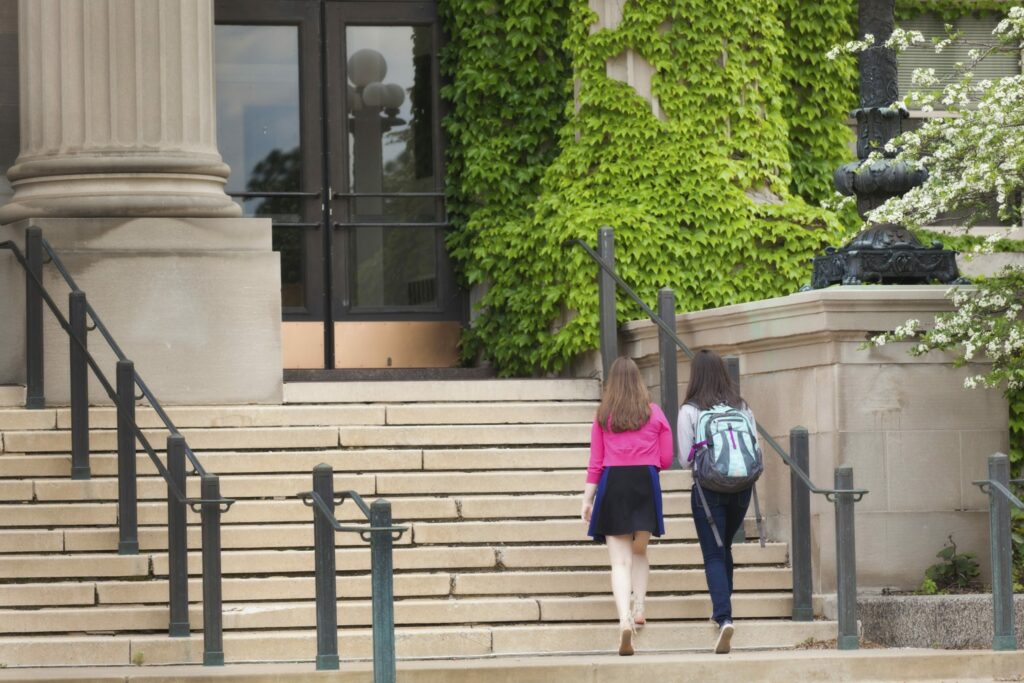
Sonoma State University
Credit: Rosie Padilla / EdSource
How could the school where I feel so supported also have one of the worst sexual assault report rates of all California State University campuses?
A detailed audit conducted and released by the state of California on July 18 has uncovered the mishandling of sexual assault reports and investigations on CSU campuses.
Sonoma State University, where I attend school, has a student body of around 7,000. The campus had 43 reports of sexual harassment between 2016 and 2022 while the much larger California State University, Los Angeles, received 39 reports with around 27,000 students. California State University Maritime Academy is the only institution with a worse rate, at 10 reports with 880 students, as detailed in the audit.
The audit closely reviewed a sample of 40 of these harassment reports in the CSU system; 21 of them were investigated by the Chancellor’s Office. Seven of those 21 cases were deemed deficient in their determination of whether sexual harassment really occurred.
As a woman, I am already on guard a lot of the time. I have been sexually harassed outside campus, and know how degrading it can feel, but it has never been part of my educational experience. Knowing that there is a possibility of speaking up about an incident that deeply affects me but not getting the acknowledgment I wanted would be devastating. The campus Chancellor’s Office formally investigated only half of the reported incidents, so it pains me to know that there are possibly victims in these cases that weren’t taken seriously.
These numbers have created a sense of unsafety and mistrust on the campus where I once felt so comfortable. As a transfer student, I quickly made friends, became accustomed to the culture of the school, and felt supported by faculty. The experience I have gained as a journalist has been largely from Sonoma State. Although I have felt a deep connection to the school, I have come to understand that others have not had the same luxury.
Hannah Rock, a junior in Sonoma State’s Hutchins School of Liberal Studies reflects on a past scandal, “We heard about the Judy Sakaki allegations, but every other allegation was kept quiet. Now that the audit has been released, we finally know the real numbers,” Rock said. Sakaki is the former president of Sonoma State and was allegedly involved in a retaliation scandal against multiple female CSU employees. CSU paid a $600,000 settlement to the women that accused Sakaki’s husband, education lobbyist Patrick McCallum, of sexual harassment.
The audit notes that a lack of “standardized data collection and analysis across its campuses” is limiting the CSU Chancellor’s Office from identifying, understanding and analyzing the problem of sexual harassment. I believe that because there is no standard data collection method, legislation should be passed to address the systemwide problem. A California state senator created a bill to do just that.
California Sen. Bill Dodd, D-Napa, introduced Senate Bill 808 in February to create a systemwide method of reporting sexual harassment cases to better handle them, as well as to reduce future incidents. The bill has passed the Senate and Assembly and is now waiting for Gov. Gavin Newsom’s approval.
“The bill is focusing on one aspect: Schools have to report cases and reports to the Legislature and on school websites,” said Paul Payne, Dodd’s press secretary. “The audit made us aware of how serious the problem is, and it’s worse than anticipated.”
SB 808 requires that reports and cases of sexual harassment be reported to the Legislature and published on a school’s website on or before Dec. 1 of each year. If there was mandatory annual reporting, I believe it would prevent some cases from happening because of extra transparency, both student-on-student and faculty harassment. I know that if I searched a school’s website and saw 30 cases of sexual harassment within a few-year period, it would cause me to question attending the school. I also know that mandatory reporting would make me feel safer.
In addition to mandatory reporting, a new policy created by the CSU Chancellor’s Office says that any administrator who has been terminated or separated from the institution will no longer be able to “retreat” to a lower faculty position, a practice known as retreat rights. Currently, if an administrator is not terminated following a sexual assault allegation, they may remain at the school, according to the CSU policy.
“Retreat rights will likely be dealt with in further legislation,” Payne said. “This audit has made us aware of further legislation that needs to be created.”
The CSU system would benefit greatly from a more secure and honest report database. Students, faculty and administrators deserve to feel safe and supported on their campuses. Sonoma State has given me so many opportunities, but after the audit, I don’t feel as comfortable on campus.
•••
Olivia Keeler is a fourth-year communications and media studies major at Sonoma State University and a member of EdSource’s California Student Journalism Corps.
The opinions expressed in this commentary represent those of the author. EdSource welcomes commentaries representing diverse points of view. If you would like to submit a commentary, please review our guidelines and contact us.




